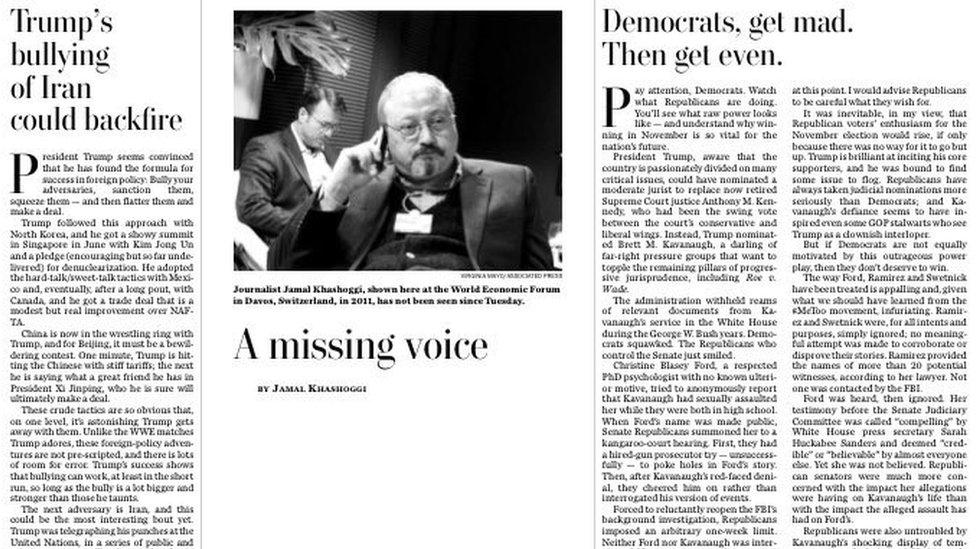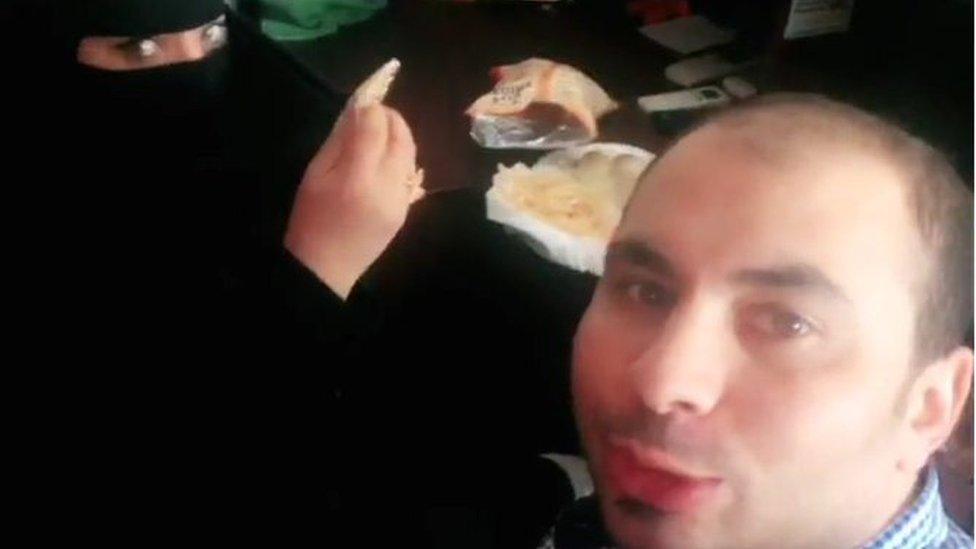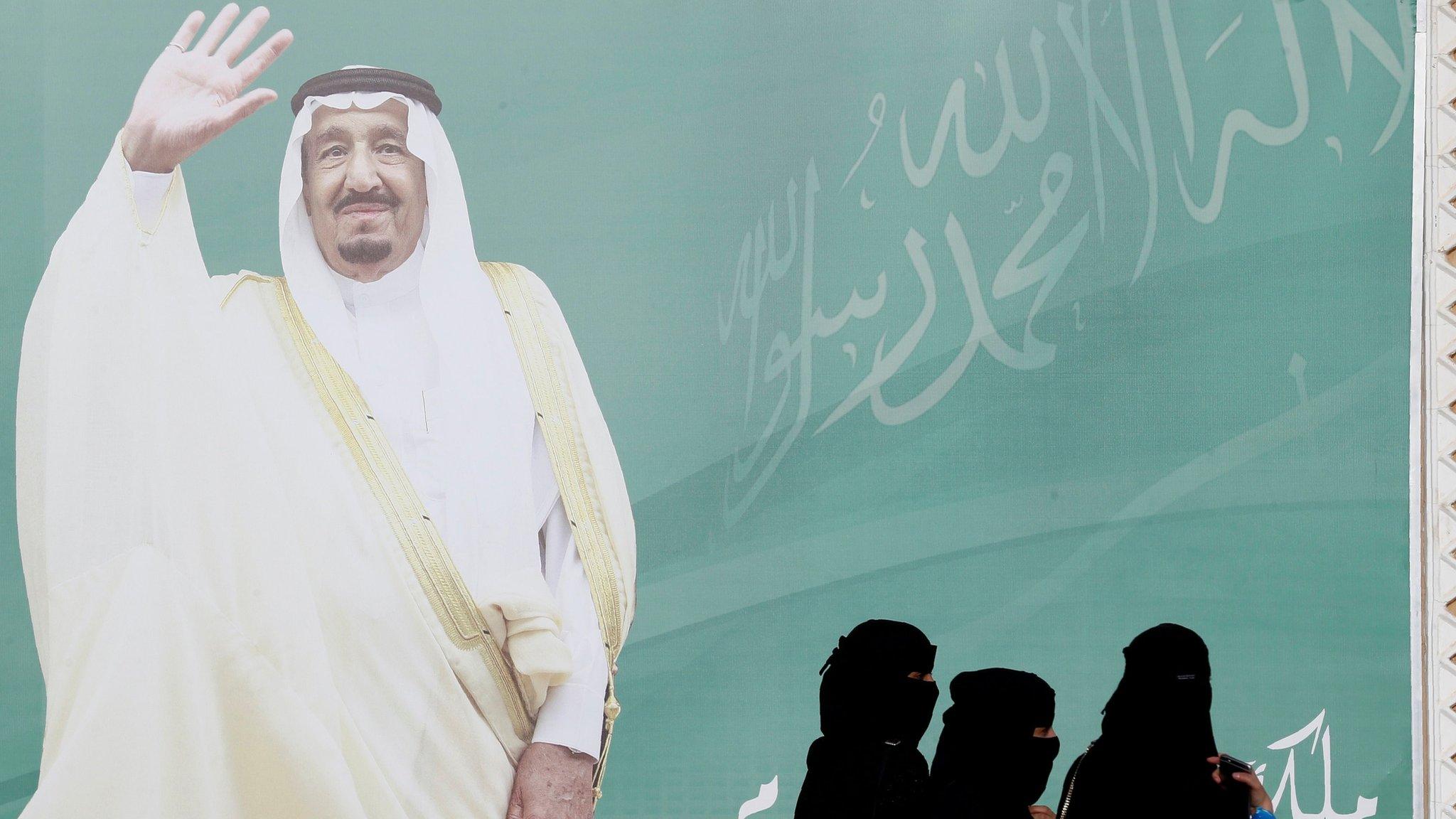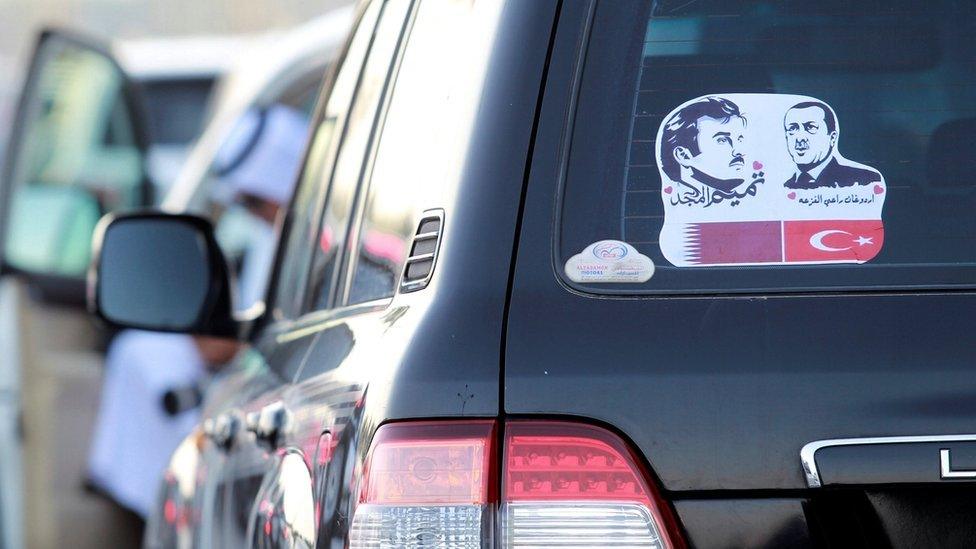Jamal Khashoggi: Washington Post blanks out missing Saudi writer's column
- Published

The blank column appears online and in the print edition
The Washington Post has printed a blank column in support of its missing Saudi contributor Jamal Khashoggi.
Mr Khashoggi - a critic of Saudi Crown Prince Mohammed bin Salman - has not been seen since visiting the Saudi consulate in Istanbul on Tuesday.
Saudi Arabia says he left the building but Turkey says he may still be inside.
The newspaper said it was "worried" and called on Mr bin Salman to "welcome constructive criticism from patriots such as Mr Khashoggi".
In an editorial, it asked that the crown prince do "everything in his power" to let the journalist work, external.
Previously an adviser to senior Saudi officials, Mr Khashoggi moved abroad after his Saudi newspaper column was cancelled and he was allegedly warned to stop tweeting his criticisms of the crown prince's policies.
The 59-year-old commentator has been living in self-imposed exile in the US and working as a contributor to the Washington Post.
What happened on Tuesday?
Mr Khashoggi went to the Istanbul consulate to obtain official divorce documents so that he could marry his Turkish fiancée, Hatice.
He left his phone with Hatice outside the consulate and asked her to call an adviser to Turkish President Recep Tayyip Erdogan if he did not return.
Hatice said she waited for Mr Khashoggi outside the consulate from about 13:00 (10:00 GMT) until after midnight and did not see him leave. She returned when the consulate reopened on Wednesday morning.
What do Saudi Arabia and Turkey say?
Turkey has said it believes he remains inside the building, while a Saudi official said Mr Khashoggi filled out his paperwork and then "exited shortly thereafter".
On Thursday the official Saudi Press Agency cited the consulate as saying it was working with Turkish authorities to probe Mr Khashoggi's disappearance "after he left the consulate building".
The US state department has also requested information about Khashoggi's whereabouts and expressed concern about his safety.
The BBC's Mark Lowen says the mystery threatens to deepen the strains in the relationship between Turkey and Saudi Arabia.
Turkey has taken the side of Qatar over its blockade by Saudi Arabia and other neighbours, and Turkey's rapprochement with Iran has riled the government in Riyadh, our correspondent adds.
Why might Saudi Arabia want Khashoggi?
He is one of the most prominent critics of the crown prince, who has unveiled reforms praised by the West while carrying out an apparent crackdown on dissent, which has seen human and women's rights activists, intellectuals and clerics arrested, and waging a war in Yemen that has triggered a humanitarian crisis.
A former editor of the al-Watan newspaper and a short-lived Saudi TV news channel, Mr Khashoggi was for years seen as close to the Saudi royal family and advised senior Saudi officials.
After several of his friends were arrested, his column was cancelled by the Al-Hayat newspaper and he was allegedly warned to stop tweeting, Mr Khashoggi left Saudi Arabia for the US, from where he wrote opinion pieces for the Washington Post and continued to appear on Arab and Western TV channels.
"I have left my home, my family and my job, and I am raising my voice, external," he wrote in September 2017. "To do otherwise would betray those who languish in prison. I can speak when so many cannot."
- Published4 October 2018

- Published10 September 2018

- Published4 September 2018

- Published22 August 2018

- Published14 June 2017
